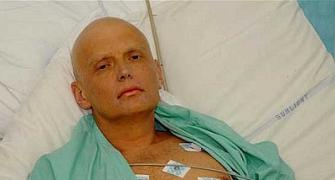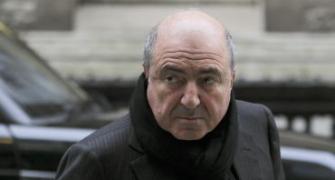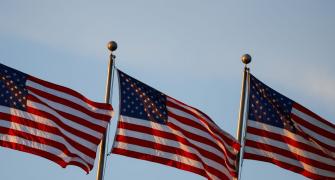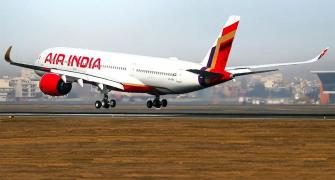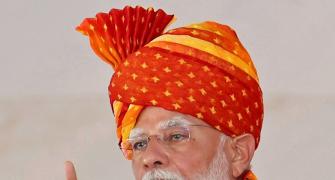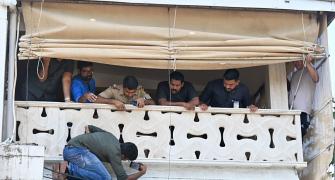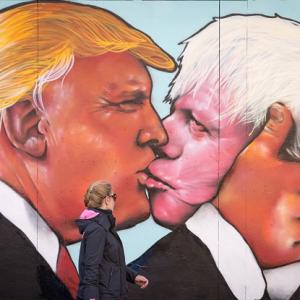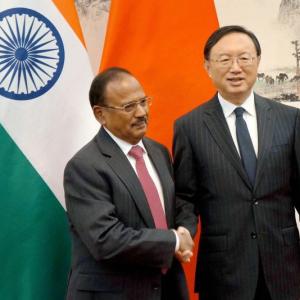British Prime Minister Theresa May on Wednesday expelled 23 Russian diplomats -- in the “single biggest expulsion” in more than 30 years -- and suspended high-level bilateral contacts, saying Moscow was “culpable” of a nerve agent attack on a former spy and his daughter.

Former Russian spy Sergei Skripal, 66, and his daughter Yulia, 33, were found collapsed after being poisoned last week. Both remain in a serious condition along with a police officer who came in contact with the same substance.
Russia denies its involvement in the attempted murder.
In a statement to the House of Commons on Wednesday, British Prime Minister Theresa May said the diplomats singled out have been identified as “undeclared intelligence officers” and will have a week to leave the country under the Vienna Convention.
“This will be the single biggest expulsion for over 30 years and it reflects the fact that this is not the first time that the Russian State has acted against our country. Through these expulsions we will fundamentally degrade Russian intelligence capability in the UK for years to come,” she said.
She told the Parliament that after chairing a meeting of the UK’s National Security Council earlier on Wednesday, the government had concluded that Russia was “culpable” as it had no credible explanation that could suggest they lost control of the nerve agent used against the former Russian spy.
“No explanation as to how this agent came to be used in the UK; no explanation as to why Russia has an undeclared chemical weapons programme in contravention of international law. Instead they have treated the use of a military grade nerve agent in Europe with sarcasm, contempt and defiance,” Theresa May said.

Among the other measures she announced included an urgent development of proposals for new legislative powers to “harden” defences, including the addition of a targeted power to detain those suspected of “Hostile State Activity” at the UK border. This power is currently only permitted in relation to those suspected of terrorism under UK law.
UK Home Secretary Amber Rudd has been directed to consider whether there is also a need for new counter-espionage powers to be introduced.
The UK will also enhance efforts to monitor and track the intentions of those travelling to the UK who could be engaged in activity that “threatens the security of the UK” through increases checks on private flights, customs and freight.
“We will freeze Russian State assets wherever we have the evidence that they may be used to threaten the life or property of UK nationals or residents,” Theresa May said.
She confirmed that the UK’s “engage but beware” approach to Russia will continue, ruling out a complete break off of all dialogue with the Kremlin. However, she said the government has revoked an invitation to Russian Foreign Minister Sergei Lavrov to pay a reciprocal visit to the UK this year and there will be no attendance by UK ministers or members of the Royal Family at the FIFA World Cup in Russia.
Moscow, which had been given an ultimatum to provide a “credible response” over how a Russian-made nerve agent came to be used on British soil by, has warned of “an equal and opposite reaction” against any UK reprisals.
The reprisals follow days of diplomacy since Theresa May first informed Parliament on Monday that there was enough evidence to conclude that it is “highly likely” that Russia is behind the poisoning of Skripal and his daughter in Salisbury on March 4.

“The UK does not stand alone in confronting Russian aggression. In the last 24 hours I have spoken to President (Donald) Trump, Chancellor (Angela) Merkel and President (Emmanuel) Macron. We have agreed to cooperate closely in responding to this barbaric act and to co-ordinate our efforts to stand up for the rules based international order which Russia seeks to undermine,” Theresa May said in her statement.
Russia, however, has insisted that it is being blamed unfairly, with the Russian embassy in the UK tweeting that the ambassador, who had been summoned to the UK Foreign and Commonwealth Office for an explanation, had branded the actions of the UK authorities as a “clear provocation”.
“We consider this hostile action as totally unacceptable, unjustified and shortsighted. All the responsibility for the deterioration of the Russia-UK relationship lies with the current political leadership of Britain,” the embassy said in a statement.
Russian Foreign Minister Lavrov accused Britain of “playing politics” and ignoring an international agreement on chemical weapons. He said Moscow would cooperate if it received a formal request for clarification from the UK under the Chemical Weapons Convention, which sets a 10-day time limit for a response.
Reiterating that the Skripal attack had taken place against the backdrop of a well-established pattern, Theresa May said today that a “full and robust response” beyond the actions already taken since the murder of Litvinenko was required to counter this “pattern of Russian aggression”.
Meanwhile, all 29 NATO countries issued a joint statement saying the attack against Skripal and his daughter was a “clear breach of international norms and agreements”.
A former Russian military colonel, Skripal was convicted of treason in 2006 and jailed for 13 years for selling secrets to MI6, which had recruited him in the 1990s. The senior intelligence officer with Russian military intelligence GRU, was pardoned in a spy swap in 2010 and settled in Salisbury, Wiltshire.

